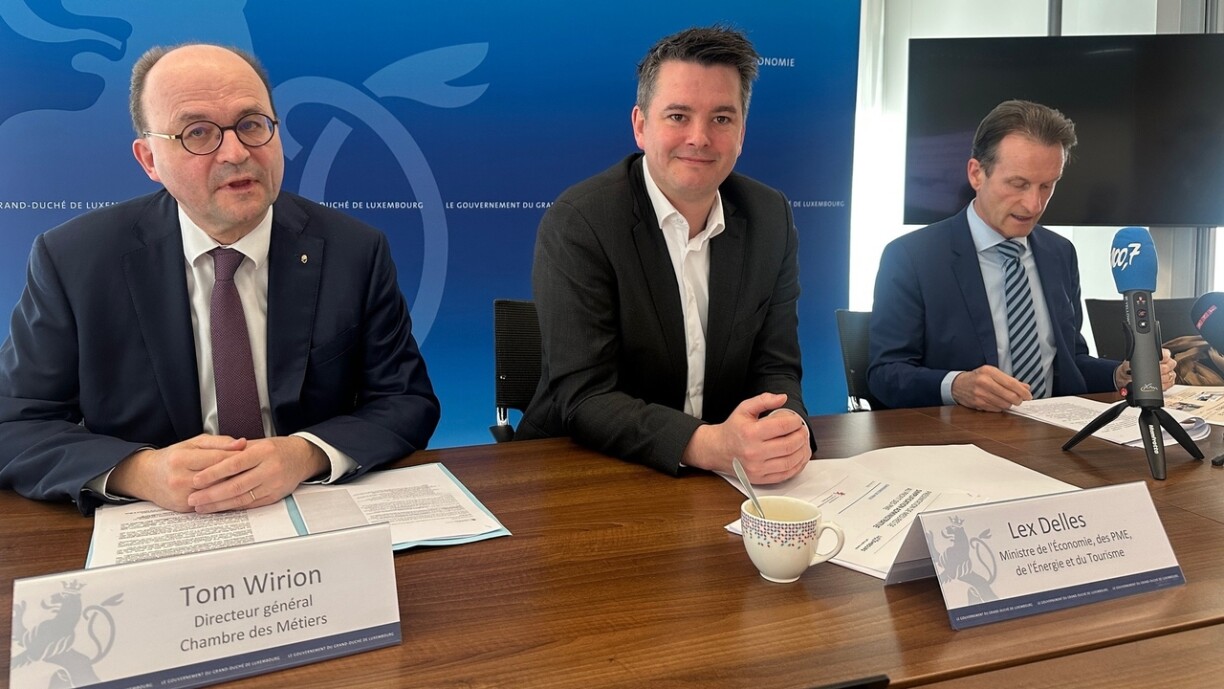
On Friday morning, Minister of the Economy Lex Delles, alongside representatives from the Chamber of Skilled Trades and Crafts and the Chamber of Commerce, unveiled a series of measures aimed at streamlining administrative procedures for small- and medium-sized enterprises (SMEs) in Luxembourg.
One of the key changes announced is the consolidation of all business startup procedures – from obtaining a business permit to registering for a VAT number – into a single process at the Ministry of the Economy. Currently, these steps take approximately one month to complete, but Minister Delles stated that the goal is to reduce this timeframe to between seven and ten working days by the end of the year. The minister also pledged to simplify the system for accessing financial aid.
Further reforms include the introduction of two principles for all draft bills tabled this year: “silence means agreement” and “once only.” The latter ensures that businesses will only need to submit their data to the state once, reducing redundancy.
In the medium to long term, the Ministry of the Economy plans to launch a digital platform to facilitate information sharing between government administrations. Additionally, a “commercial registry” will be created to consolidate all activity zones in Luxembourg, providing a clear overview of available plots for new businesses. However, the minister did not specify a timeline for when these measures will be fully implemented.
One initiative already in place is the digital “accommodation forms,” which can be completed through MyGuichet. According to the ministry, this has eliminated the need for over 15,000 letters to be sent.
The Chamber of Commerce and the Chamber of Skilled Trades and Crafts have expressed high expectations that the government will deliver on its promise to simplify administrative processes, a long-standing demand from the business community.
Tom Wirion of the Chamber of Skilled Trades and Crafts highlighted the growing administrative burden on businesses, noting that in 2024, 35% of staff time was spent on administrative tasks – a significant increase from just 11% in 1990. Wirion argued that this time could be better spent on core business activities, emphasising that for the country’s crafts businesses, in particular, excessive bureaucracy is a hindrance. “Less is more,” he stressed, calling for a reduction in red tape.
Meanwhile, the Chamber of Commerce conducted a qualitative survey among a sample of 50 businesses to gauge their concerns. The results revealed that a majority of respondents still view administrative procedures as a significant burden, with 33% stating that they believe these processes have become even more complicated in recent years.
The government has also expressed support for the European Commission’s plans to simplify sustainability reporting requirements. All three speakers acknowledged that the current reporting demands are seen as a major challenge for many businesses. However, they clarified that simplifying these processes does not equate to pursuing deregulation.